Natural Garden Fertilizers: The Ultimate Guide
You don't have to buy expensive fertilizers! Your garden will thrive with these DIY versions made from items around your pantry and backyard!
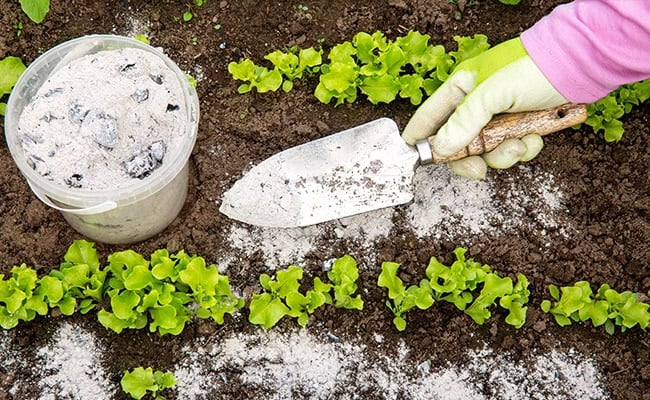
Taking care of your garden goes beyond just pulling weeds and keeping pests at bay. For your plants to truly thrive, they need a healthy dose of nutrients to reach their full potential. While chemical fertilizers can provide a quick fix, natural fertilizers offer a sustainable and environmentally friendly alternative.
Jump to DIY Natural Fertilizer Options
What are natural fertilizers?
Natural fertilizers, unlike synthetic ones, come from natural materials and improve the overall health of your soil. This translates to stronger plants, better yields, and a more vibrant garden ecosystem.
Why use natural fertilizers?
There are many compelling reasons to choose natural fertilizers over synthetic options. Here are just a few:
- Improved Soil Health: Natural fertilizers promote the growth of beneficial microbes in the soil, which helps break down organic matter and make nutrients more readily available to plants. This leads to healthier soil that retains moisture more effectively.
- Reduced Environmental Impact: Synthetic fertilizers can leach into waterways, causing harm to aquatic ecosystems. Natural fertilizers, on the other hand, are less likely to pollute and contribute to a more sustainable gardening practice.
- Safety for Children and Pets: Chemical fertilizers can be harmful if ingested by children or pets. Natural fertilizers pose a much lower risk, making your garden a safer space for everyone.
- Long-Term Benefits: While synthetic fertilizers provide a quick burst of nutrients, they can deplete essential elements over time. Natural fertilizers provide a slow and steady release of nutrients, promoting long-term soil health.
Step 1: Understanding Your Soil
Before diving into the world of natural fertilizers, it’s important to understand the foundation of your garden: the soil. Different soil types have varying nutrient profiles and drainage capacities.
Conducting a simple soil test will reveal your soil’s pH level and nutrient content. This information is crucial for choosing the right natural fertilizers and ensuring their effectiveness. Here are some easy ways to test your soil’s pH:
- Purchase a home soil test kit: These kits are readily available at most garden centers and provide a relatively accurate assessment of your soil’s pH.
- Send a soil sample to a testing lab: For a more comprehensive analysis, consider sending a soil sample to a professional testing lab. This will provide detailed information about your soil’s nutrient content and organic matter levels.
- Use a natural soil pH test: While less precise than other methods, a natural test using vinegar and baking soda can provide a basic idea of your soil’s acidity or alkalinity.
The Most Beneficial Natural Fertilizers
Now that you understand the advantages of natural fertilizers and the importance of soil testing, let’s explore some of the most effective options you can incorporate into your gardening routine. We’ll categorize them based on their benefits and accessibility.
1. Compost
Compost reigns supreme in the world of natural fertilizers. This nutrient-rich material is created by the decomposition of organic matter like food scraps, yard waste, and leaves. Compost feeds the soil microbiome, improves soil structure, and provides a slow-release source of essential nutrients for a wide range of plants.
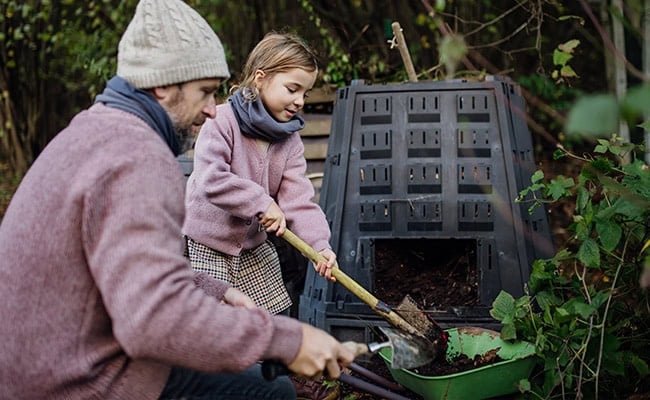
How to Use Compost:
- Amend your garden beds with a 2-3 inch layer of compost before planting.
- Enrich your potting mix for container plants with compost.
- Apply compost as a top dressing around established plants throughout the growing season.
Pro Tip: Not all compost is created equal. Aim for well-aged compost that has a crumbly texture and a pleasant earthy smell.
2. Grass Clippings
A readily available source of nitrogen, grass clippings can be a valuable addition to your garden’s fertilizer arsenal. However, there are a few things to keep in mind:
- Fresh vs. Dried: Fresh clippings can mat down and hinder air circulation. Let them dry for a day or two before adding them to your garden.
- Nitrogen Boost: Grass clippings are a green material, high in nitrogen. This is great for leafy vegetables but not ideal for flowering plants that require more phosphorus.
- Herbicide Warning: If you’ve recently treated your lawn with herbicides, avoid using those clippings in your vegetable garden.
How to Use Grass Clippings:
- Spread a thin layer of dried grass clippings around your plants as mulch.
- Add grass clippings to your compost pile for a nitrogen boost.
3. Manure
Manure is a fantastic source of organic matter and nutrients for your garden. However, different types of manure have varying nutrient profiles. Here’s a quick breakdown:
- Cow Manure: A well-rounded fertilizer rich in nitrogen, phosphorus, and potassium. Aged cow manure is best to avoid burning tender plants.
- Chicken Manure: Very high in nitrogen, chicken manure is best composted before using in the garden.
- Horse Manure: A good source of nitrogen and potassium, horse manure heats up as it decomposes, making it ideal for raised beds.
Important Considerations:
- Fresh manure: Fresh manure can be too strong for plants and can harbor weed seeds and pathogens. Always use aged or composted manure.
- Manure source: Be sure to obtain manure from a reputable source that raises animals without antibiotics or growth hormones.
How to Use Manure:
- Aged manure can be dug into your garden beds before planting.
- Create a manure tea by soaking composted manure in water for a few days. Dilute the tea before applying it to your plants.
Beyond the Basics: A World of Natural Options
The world of natural fertilizers extends far beyond our top three contenders. Let’s delve into some unique and effective options you can explore:
- Coffee Grounds: A good source of nitrogen, coffee grounds can add a slight acidity to your soil, making them ideal for acid-loving plants like blueberries and azaleas. However, use them in moderation as too much coffee can impede germination.
- Eggshells: A natural source of calcium, eggshells can help improve cell wall strength in plants and deter some pests like snails and slugs. Crush eggshells before adding them to your garden bed or compost pile.
- Fish Emulsion: Made from pressed fish scraps, fish emulsion is a liquid fertilizer rich in nitrogen and phosphorus. While effective, fish emulsion has a strong odor. Dilute it heavily before applying it to your plants.
- Seaweed Extract: Packed with micronutrients and beneficial kelp, seaweed extract can stimulate plant growth and improve overall plant health. Seaweed extract is available in liquid or powder form.
- Cover Crops: Planting cover crops like clover or ryegrass in your garden beds during the off-season adds organic matter to the soil, fixes nitrogen, and suppresses weeds. Till the cover crops under before planting your main crops.
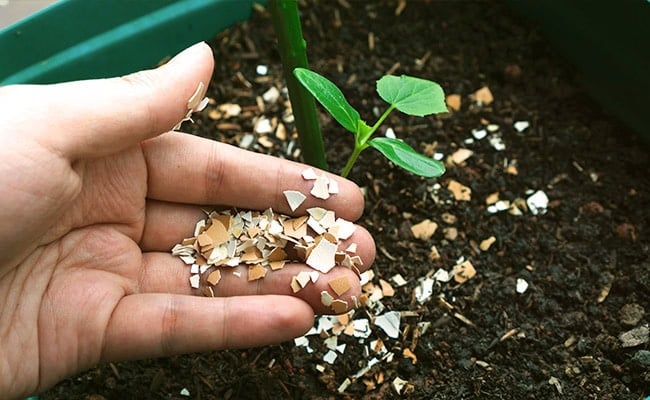
Natural Fertilizers for Specific Needs
Not all plants have the same nutritional requirements. While some natural fertilizers offer a well-rounded nutrient profile, others excel in specific elements. Here’s a quick guide to some natural fertilizers for targeted purposes:
- Nitrogen: Blood meal, alfalfa meal, soybean meal.
- Phosphorus: Rock phosphate, bone meal (use sparingly due to high potency).
- Potassium: Wood ash (be sure the wood is untreated), kelp meal.
DIY Natural Fertilizer Options
There’s a sense of accomplishment and environmental friendliness that comes with creating your own natural fertilizers. Here are a few easy DIY options you can try:
- Compost Tea*: Steep composted manure or compost in water for a few days. Dilute the resulting tea before feeding it to your plants.
- Worm Castings Tea: A powerhouse of nutrients and microbes, worm castings tea can be made by steeping worm castings in water.
- Banana Peel Fertilizer: Rich in potassium, banana peels can be chopped up and added directly to your soil or composted pile.
*Introducing compost teas rich in beneficial microorganisms or incorporating biochar into the soil can further support microbial diversity, contributing to the overall health of your garden ecosystem.
A Cost-Effective Approach
While natural fertilizers are generally less expensive than synthetic options in the long run, there are ways to be even more cost-effective in your approach. Here are some tips:
- Embrace what you already have: Before venturing out to buy fertilizers, consider what resources you already have access to. Kitchen scraps like eggshells, banana peels, and coffee grounds can all be composted or used directly in your garden. Similarly, if you have a fireplace and burn untreated wood, the ashes (used sparingly) can be a source of potassium.
- Befriend your neighbors: Connect with fellow gardeners in your neighborhood. You might be able to barter or share resources. Perhaps you have an abundance of coffee grounds while your neighbor has a steady supply of leaves – a perfect opportunity for a mutually beneficial exchange!
- Think long-term: Invest in a good compost bin or tumbler. Having an ongoing compost pile allows you to continuously create nutrient-rich fertilizer for your garden. Look into vermicomposting (composting with worms) for a smaller-scale, indoor option.
- Buy in bulk (when practical): If you have the storage space and know you’ll use it all, buying certain natural fertilizers like composted manure or bone meal in bulk can be more cost-effective.
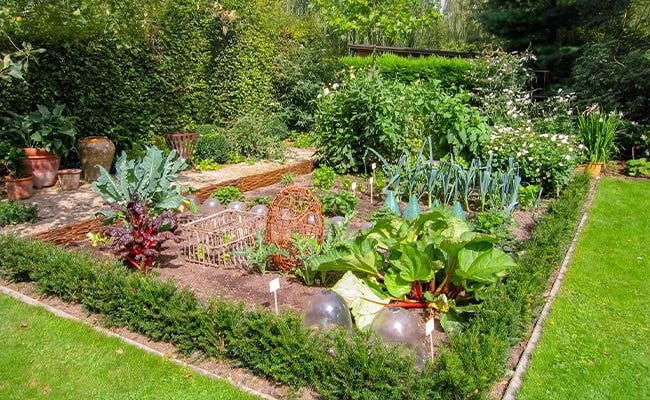
Beyond Fertilizers: A Balanced Ecosystem
Natural fertilizers are a fantastic way to nourish your plants, but they are just one piece of the puzzle when it comes to building a healthy and balanced soil ecosystem. Here are some additional practices to consider:
- Practice crop rotation: Planting different crops in the same bed year after year can deplete specific nutrients from the soil. Rotating your crops helps maintain a more balanced nutrient profile.
- Introduce beneficial insects: Ladybugs, lacewings, and other beneficial predators can help control pest populations naturally. Planting flowers that attract these beneficial insects can create a welcoming habitat.
- Mulch your garden beds: A layer of mulch around your plants helps retain moisture, suppress weeds, and regulate soil temperature. Choose organic mulch materials like wood chips, shredded bark, or leaves.
3 additional Aspects to keep in mind:
Microbial Diversity
Microbial diversity plays a crucial role in soil health and plant nutrition. While this article highlights the benefits of natural fertilizers in promoting soil microbial activity, it’s essential to emphasize the importance of fostering diverse microbial communities on a larger. Encouraging microbial diversity through the use of natural fertilizers can enhance nutrient cycling, improve soil structure, and boost plant resilience to diseases and environmental stressors.
Sustainable Packaging and Sourcing
In addition to discussing the benefits and applications of various natural fertilizers, it’s important to address the sustainability of their packaging and sourcing. Choosing products packaged in biodegradable or recyclable materials reduces environmental impact and aligns with eco-conscious gardening practices.
Additionally, sourcing natural fertilizers locally or from reputable suppliers supports sustainable agriculture and reduces carbon emissions associated with transportation. By prioritizing products with transparent sourcing practices and minimal packaging waste, gardeners can make informed choices that contribute to a healthier planet.
Community and Knowledge Sharing
We would like to underscore the role of community and knowledge sharing in sustainable gardening practices. Joining community gardening groups, attending workshops, or participating in online forums provides opportunities to exchange ideas, troubleshoot challenges, and discover new techniques for nurturing thriving gardens.
Collaborative efforts not only foster a sense of camaraderie but also empower individuals to make informed decisions about natural fertilizers, soil health, and ecological stewardship. By engaging with a diverse community of gardeners, enthusiasts can cultivate deeper connections with the land and inspire positive change in your local environment!
A Final Thought
The journey to a thriving garden doesn’t have to rely on harsh chemicals. Natural fertilizers offer a safe, sustainable, and effective way to nourish your plants and nurture a healthy ecosystem. By embracing natural fertilizers and fostering a healthy soil ecosystem, you’re not just nurturing your plants, you’re contributing to a more sustainable future. The reward is a thriving garden that is teeming with life and supports a diverse range of pollinators and beneficial creatures.
Best wishes as you “get growing” with natural fertilizers! Grab your gardening gloves, dig in, and watch the beauty unfold in your backyard!
Which natural fertilizers do you plan to use in your garden this year?
Share your tips and experiences in the comments below!
Related
Farmers’ Almanac Planting Calendar
This article was published by the Staff at FarmersAlmanac.com. Any questions? Contact us at [email protected].


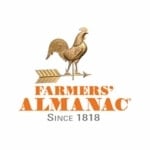
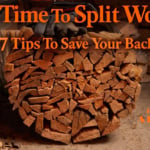
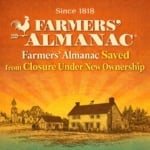


Hi, can you please help me on Daikon radish ? Which type of fertiliser is good ?
Hi Thanush, We would recommend that you choose fertilizers with phosphorus and potassium for daikon radishes. Try bone meal and/or kelp meal. Please note: excessive nitrogen will encourage lush foliage rather than encouraging root growth (which you don’t want). Any other questions? Let us know! We hope these tips help you! Best wishes from your friends at FA!
Are wood chimney cleanings good as a fertilizer? Thx
Hi Brian, We wouldn’t recommend using random wood chimney cleanings and soot in your garden. But you may burn clean, untreated hardwood in your fireplace to create wood ash fertilizer. The drier the wood, the finer (and better) the ash will be. If you would like more information about this, let us know, and we will share more!
What is best for cucumbers? I’ve never had any trouble until this year with my cucumber plants. They just wilted up and died within 2-3 days. We water them every day as it is dry this year.
Cucumbers do not need a lot of Nitrogen, so all-purpose fertilizer is usually not appropriate. Bone Meal, Worm Castings, Tea leaves or used coffee grounds, and egg shells are all great for cucumbers. Best of luck!
I have one warning about using leaves. We have a ton of trees, so one year I mulched, bagged, and stored leaves in a dark spot over winter to use for my garden. Found out the hard way that vine borers love to live and reproduce in those leaves. No squash for me that year. So just be careful, please.
This is a great reminder! Thank you for sharing.
Seems that with the abundance of invasive plants and a lake with nutrient rich muck could be a win win
Good tips! I’ve been working on my compost bin for 6 months. It’s dry, I think I need to add water perhaps. Your other tips are bang on. No meat, no critters…except the ones you want.
Kumar Medical Care
Great! Thanks for sharing
Very informative, practical advice
Thank you Rob,
Glad you found it useful. Hope you enjoy other articles here as well!
Many of these are simply not true (see coffee grounds, eggshells) in the strict sense. They are long disproved gardening myths. Disappointed to see them here.
What’s best to use on pumpkins?
Composting for vegetable garden